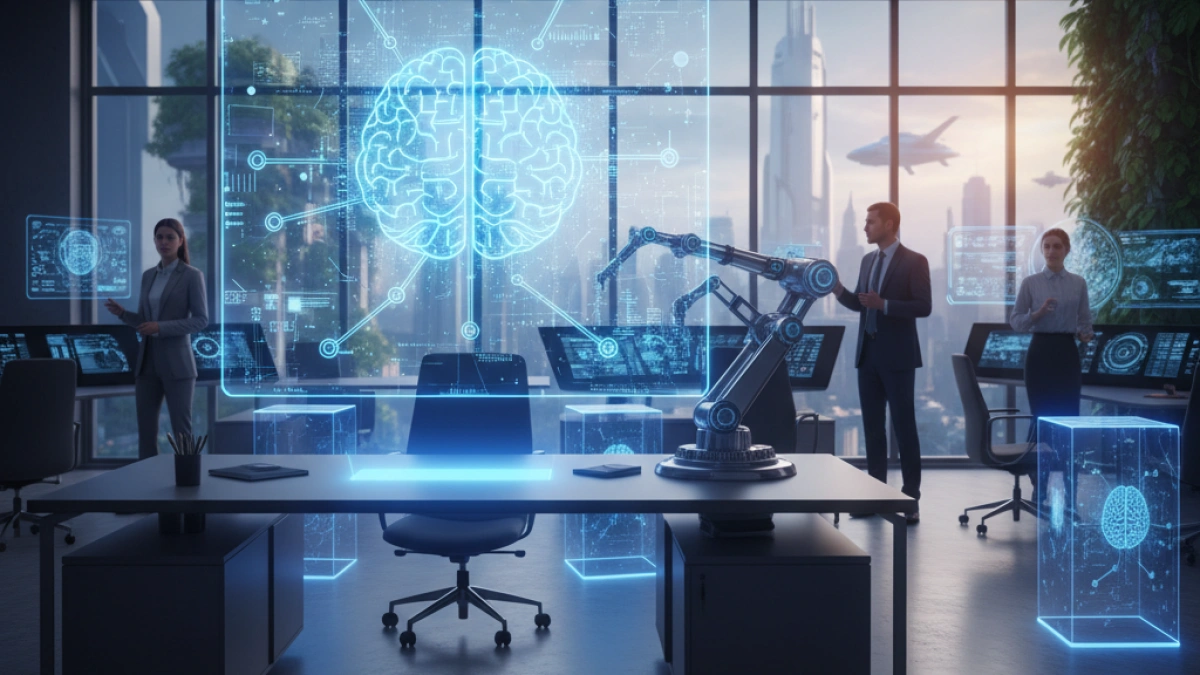AI Will Replace Half of US Office Workers, Ford CEO Says


Artificial intelligence is positioning itself as a disruptive element in the workplace, and its impact promises to be deep and lasting. Recently, the CEO of Ford issued a powerful warning: AI is expected to replace half of office workers in the United States in the coming years. This statement adds to a growing consensus in the business realm regarding the radical transformation the labor market will face due to automation.
A Changing Labor Paradigm
The claim made by the CEO of Ford is not an isolated case. In recent months, prominent business leaders, such as Andy Jassy, CEO of Amazon, and Dario Amodei, CEO of Anthropic, have expressed similar concerns about the advent of AI and the paradigm shift that lies ahead. These voices, some even echoed by influential figures like Barack Obama, have made it clear that the future of work is seen in a new light.
The Decline of Traditional Employment and the Rise of Trades
During his speech, the CEO of Ford not only predicted an uncertain future but also backed his claims with alarming data. One of the most concerning pieces of information mentioned was that hiring for entry-level positions in tech companies has dropped by 50% since 2019. This drastic decline calls into question the conventional educational model that assumes all young people must follow a four-year college education path. The CEO wondered if this is truly the best route for "all our children."
As office tasks become automated and replaceable, it has become evident that the demand for specialized trades is on the rise. The executive emphasized the relevance of practical skills by citing examples of jobs expected to remain, such as electrical line installation, factory construction, and water system installation. This statement highlights the growing need for technical and manual competencies in the emerging new economy.
A New Educational Perspective
Reflecting this transformation in public perception, a recent survey by Harris revealed that one-third of Americans would now recommend technical training over a traditional college degree. The survey suggests that more and more people are finding success and satisfaction in specialized trades, demonstrating that there is a viable alternative to the prevailing educational approach.
The message from the CEO of Ford is clear: a "new mindset" is needed to face this transformation. The disruption caused by AI in the workforce is already underway, and its pace is expected to increase, underscoring the necessity of adapting to the new market realities.
A Call for Adaptation and Continuous Training
Ignoring the reality of AI's impact on employment is a risky stance for both workers and educational systems. The future suggests that adaptation and continuous training are not just recommendations but survival strategies in this new economy that AI is shaping.
New educational models that foster practical and technical skills are essential for preparing future workers and adapting to the changing needs of an evolving labor market. Collaboration between industries and educational systems may be crucial to ensuring that the workforce is equipped with the necessary competencies to thrive in this new era.
In conclusion, the warning from the CEO of Ford serves as a reminder that the future of work is changing rapidly and that both workers and educators must be prepared to adapt. The revaluation of specialized trades, along with a renewed approach to education and continuous learning, appears to be the key to facing the challenges posed by AI in the workplace.
To explore more about new labor trends and the impact of technology on education, visit the blog and stay updated on the latest research and analysis.



















